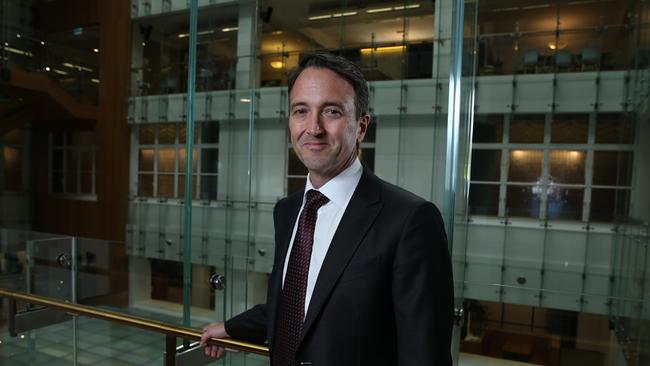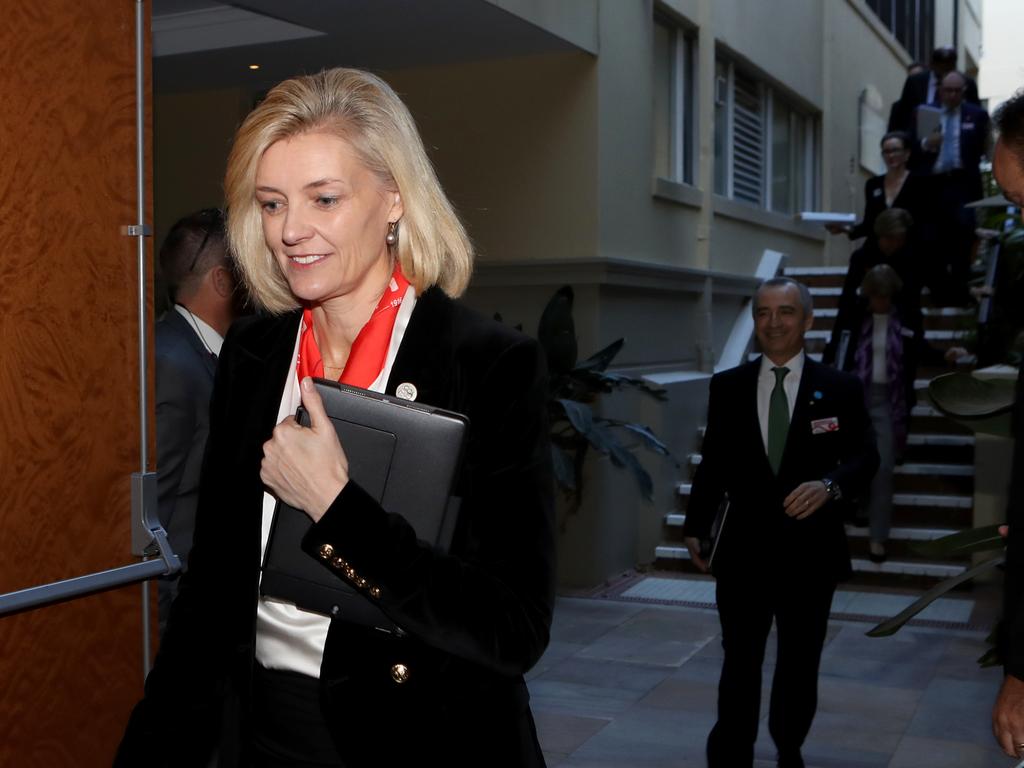
The bonuses it should be noted are down from $5.1m a year ago when they collected 49 per cent of their potential maximum against 20 per cent for 2020.
Chief executive Richard Howes will collect $1.8m including $1.3m in fixed pay, compared to last year in which he was only boss for six months and he walked away with $1.3m in short-term pay and $993,000 in fixed pay.
All in a day’s work and it should be noted this year the short-term incentive will be all in stock against last year when only 50 per cent was paper, so they are more aligned to shareholders.
Challenger was hit hard with COVID and Howes figures earnings this year will be around the $415m level, or 6 per cent below market estimates, which probably explains the 6.5 per cent fall in its stock price to $4.06 a share.
The loss last year was due to investment performance which took a caning from COVID especially given some 85 per cent of its $18.2bn life book is invested in fixed income.
Howes took a conservative stance moving out of high yield into investment grade.
Operationally, however, he is hitting plenty of home runs with a more diversified distribution network, with direct sales close to three times the level two years ago at 14 per cent, offsetting the fall in bank-owned advice networks.
New products like its Index Plus Challenger Life doubled sales and also a new RBA-linked life annuity performed well.
In all, life sales thanks in part to a strong performance from its Japanese partnership are up 13 per cent and with $1.6bn in excess capital in its life book Howes is positioned cautiously, hoping for better investment returns.
Short memories
The relief for former AMP chair Catherine Brenner misses the point because frankly the culture at AMP has been rotten for some years — including during her reign.
No-one wants the spectre of ASIC charges hanging over their heads. But in the flurry of well-grounded good wishes, memories are short.
The reason AMP had attracted the attention of ASIC, and through the regulator the Hayne royal commission, was multiple potential breaches of the rules, including fees for no service and conflicted commissions. It was not exactly a shining example of a pristine corporate culture.
Clearance from ASIC should not be misconstrued somehow as an endorsement of Brenner’s time in the role of AMP chair.
Brenner — like Lindsay Maxsted at Westpac, Ken Henry at NAB and David Turner at CBA — left the AMP in the wake of clear governance failures.
Given its sorry history since listing 22 years ago, the sooner the AMP is taken over and or split up the better it will be for everyone.
The most logical candidate remains Macquarie but it presumably is wary of the regulatory risks in such a move, not to mention ongoing class action settlements.
None of which would be posted on the list of achievements for any company chair.
Cultural change at a 170-year-old organisation doesn’t come quickly and to be fair to Brenner her focus was no doubt a work in progress.
Brenner’s successor David Murray and his Credit Suisse mates are learning first hand about the challenges of cultural change. Right now their scorecard is zero out of 10.
Brenner has major hurdles cleared but her next steps in corporate Australia should be based more on perceptions of her past roles at AMP and elsewhere, not on the fact ASIC said it won’t be taking any action against her.
Fly me to the moon
Oscar Wilde once said “consistency is the product of a second rate mind”, and there were the former UBS bankers Matthew Grounds and Guy Fowler telling Sydney Airport boss Geoff Culbert why he should have a shareholder friendly, UBS-managed, renounceable rights issue to raise the $2bn in capital needed for the overleveraged vehicle.
The same two presided over the investment banking party of the last decade after the GFC when corporate Australia raised $103bn, netting investment banking fees of some $2bn of which UBS took home around $1.3bn.
Not a single renounceable issue in sight back then when it was explained the market was too volatile, but now it is seen as shareholder friendly to give holders some value for their rights by trading them if they don’t want them.
Ownership Matters figures show the COVID raisings have topped $30bn so far of which banks have taken home fees totalling some $490m but this time led by Macquarie.
Fowler and Grounds, who are widely tipped to return in a new house in the second half of next year, did this deal for charity under the Adara Capital name.
Sydney Airport is at the centre of the COVID economic destruction with international passenger numbers down 97 per cent, domestic by 94 per cent and IATA tipping a return to full international travel in around four years.
With $9.1bn in debt and $1.4bn of that due in the next 12 months Culbert made the right call in raising money now to cut debt to $7.1bn and in the process gearing from 6.8 times earnings to 5.3 times.
In the good days Virgin accounted for 12 per cent of revenues so the talks with its new owner Bain on the rents going forward are obviously important.
Culbert wants to roll the contract over for another year to work out better terms in “normal” conditions but whether Bain agrees remains to be seen.
In a statement yesterday, Bain told the bondholders quietly to buzz off, allowing it to do such deals to maximise creditor returns. Bain said: “Two Asian-based hedge funds, accounting for only $300m, or less than 5 per cent, of the $6.7bn owed to creditors, are trying to frustrate the administration process by creating as much noise and interference as possible. They do not speak for all bondholders.”
Keeping spirits up
Frustration levels south of the border are running high so John Wylie at Tanarra Capital has arranged weekly pep talks via the fund’s very own video conference service Pexip, and introducing some old friends to the team.
This week it will be former Credit Suisse banker Chris Liddell, who now serves as deputy chief of staff in the Trump White House, and other guests have included Paul Keating, author Richard Flanagan, Paralympian Kurt Fearnley, netballer Liz Ellis and Norwegian downhill ski champion and fellow Pexip shareholder Aksel Lund Svindal. The series is known as legends in lockdown.
EY boss Tony Johnson recently sent Melbourne staff a “care package” including sanitisers, masks, muesli, recipes and a $50 voucher to spend on wellbeing.








Challenger reported a statutory loss of $416m for the 2020 financial year but management still collected $2.3m in bonuses on top of fixed pay of $3.9m.